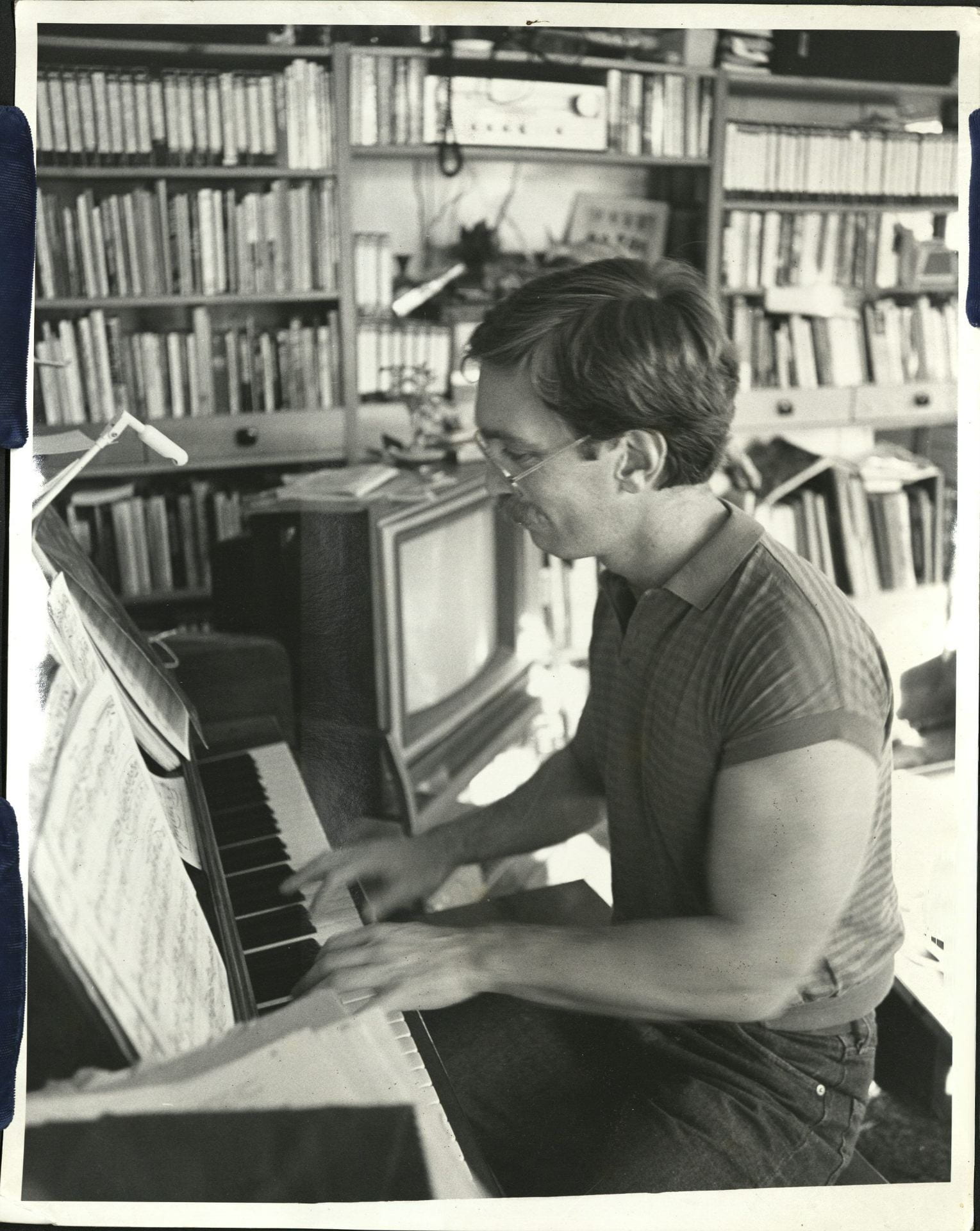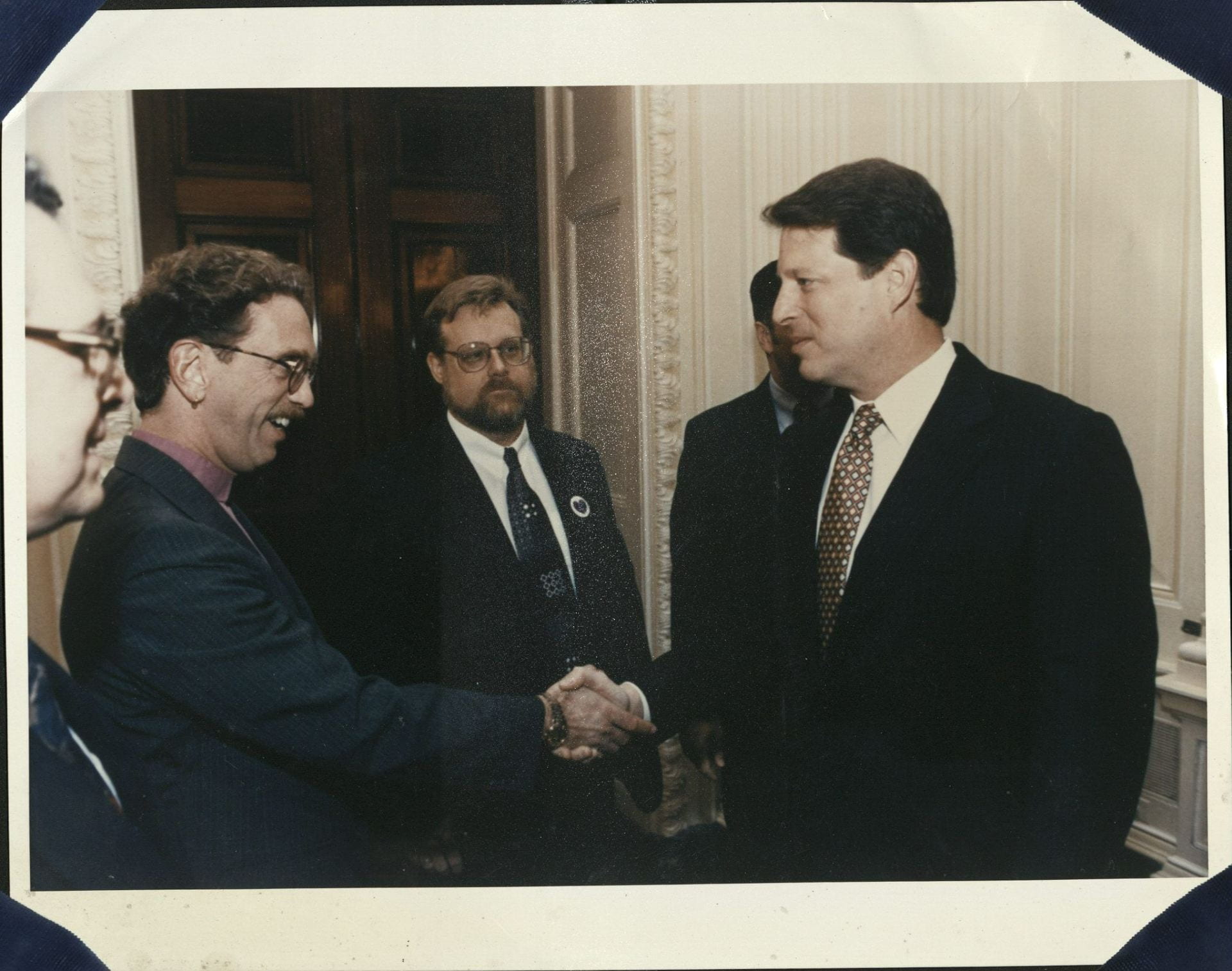By Natalia Gonzalez Blanco Serrano ’24
Steve Pieters ’74 has stood under many spotlights in his lifetime—on stage, at the altar, on TV—and has touched a wide range of audiences. University Archives recently acquired Pieters’s collected papers, ensuring that many details of his inspiring life will be accessible to future audiences.
As a theatre major at Northwestern, Pieters performed in dozens of shows and graduated with a degree from the School of Communication. In his early 20s, he said, he struggled to find his path; he was also coming to terms with his gay identity. It wasn’t until he started attending Chicago’s Metropolitan Community Church (MCC), which was home to a vibrant, openly LGBTQ congregation, that he discovered his first queer community—people who fully embraced who he was and who he would become.
“A year after I’d started going to MCC, I was sitting in a service and was suddenly struck with the absolute certainty that I was called into the ministry,” he said. “It was as blindingly clear an idea as I’d ever had.”
Pieters wasted no time: he enrolled in McCormick Theological Seminary, received his master of divinity degree, and moved from Chicago to Hartford, Connecticut, to become pastor at its local MCC. He spent three years there, then moved to Los Angeles in 1982. Soon thereafter, he got sick and was told he had “gay-related immune deficiency.” In 1984 he was formally diagnosed with AIDS, Kaposi sarcoma, and stage 4 lymphoma.
Despite his diagnoses, Pieters pushed on. He became director of the Los Angeles MCC’s AIDS ministry and refused to let his medical condition limit his will to live. He continued to galvanize people through his ministry and began reaching out beyond religious circles. Famously, he sat for a live satellite interview with televangelist Tammy Faye Bakker in 1985 that not only highlighted Pieters’s humanity as a person living with AIDS but also helped turn Bakker into a champion of gay rights.
University archivist Kevin Leonard was grateful to receive the papers of an alumnus he calls “a living model of strength and compassion.”
“His records provide evidence of how our institutions and our society confronted AIDS,” Leonard said. “His archive is a remarkable and searing collection of material that will speak clearly to future generations.”
Pieters’s archives will be fully processed this summer. Other memorabilia of his can be found in the Smithsonian Institution and the National Museum of American History in Washington, DC.
Natalia Gonzalez Blanco Serrano is a Medill School of Journalism senior. This story originally appeared in the print issue of Footnotes, Spring 2023.



